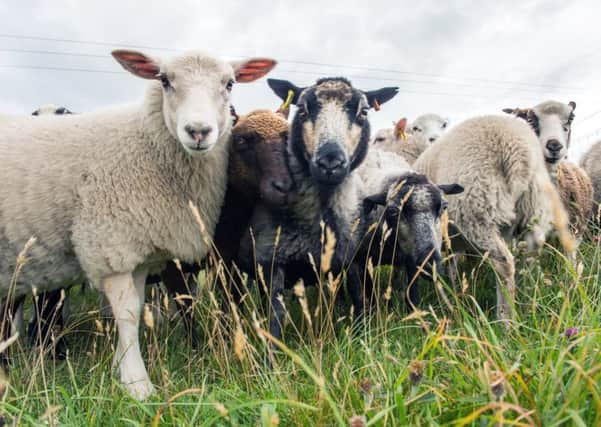Highlighting the crucial role of sheep in Scotland


And this week a major publication that outlines the complementary role sheep play in these areas was released by the National Sheep Association (NSA).
• READ MORE: Farming news
“Sheep farming businesses in upland and hill areas provide a wide range of public goods and services,” said George Milne, the NSA’s development officer in Scotland.
Advertisement
Hide AdAdvertisement
Hide Ad“These cover the three pillars of sustainability – economic, environmental and social – highlighted by bodies like the International Convention of Biological Diversity.”
Milne said the publication was aimed primarily at policymakers, and included Scottish-specific examples which set out some of the reasons why sheep and their farmers were so vital to the economy, environment and social fabric of Scottish hills and the nation as a whole.
“The facts and statistics, together with working case studies, highlight what the sheep sector contributes to other areas such as tourism, carbon sequestration, community viability, rural economy and biodiversity as well as the most obvious but certainly undervalued food production from the most marginal ground in Europe,” said Milne.
“With sheep farming arguably the most exposed industry in Brexit discussions there has never been a more vital time to stress the importance of this ancient primary industry.”
• READ MORE: ‘Let’s go for a bright sheep industry in Scotland’
The publication was released as cabinet secretary Fergus Ewing visited the hill farm of Kenny and John Matheson between Strathnairn and Tomatin in the Highlands.
John Fyall, the NSA Scotland chairman, welcomed the opportunity to release the document to the cabinet secretary “on a real farm in one of the harshest pastoral environments in Europe”.
Advertisement
Hide AdAdvertisement
Hide Ad“For the secretary to hear first-hand the issues and obstacles facing our hill shepherds from a progressive farming family has got to be of mutual benefit. The NSA hopes this is the start of a regular and constructive dialogue on how we protect and promote the sheep industry in the face of trade, regulatory and support changes.”
Following a visit later in the day to a hill farming summit in Dingwall, Ewing said that the “comprehensive and ambitious” set of recommendations drawn up an industry led review of the sector released last autumn were already being worked on and he thanked those involved in its production for their efforts.